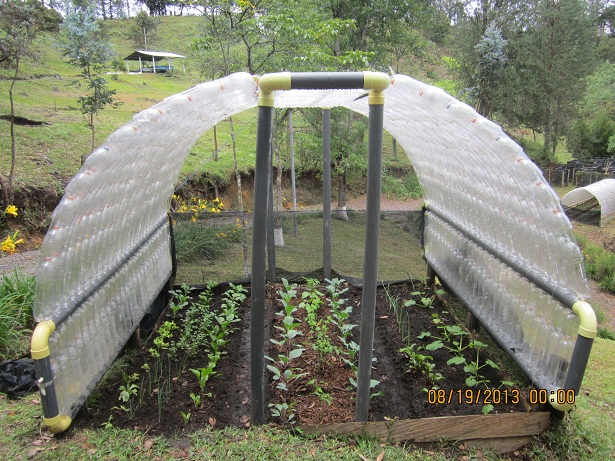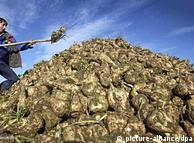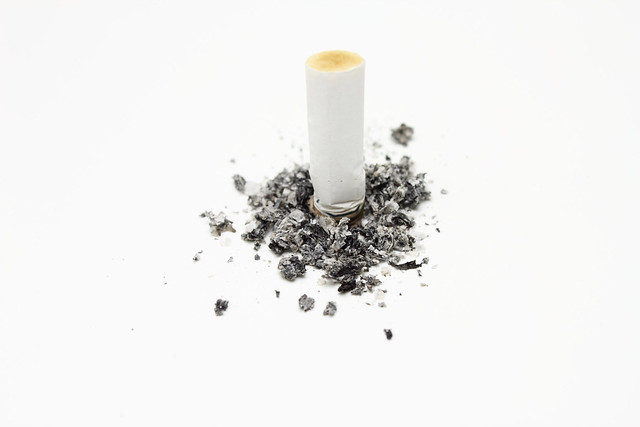Search Results for Tag: plastic
Plastic bottles to greenhouses
 A few days ago we received a very inspiring idea from Colombia. The e-mail came from the Centre for Science and Environmental Awareness and it helps to deal with growing mountains of empty plastic bottles.
A few days ago we received a very inspiring idea from Colombia. The e-mail came from the Centre for Science and Environmental Awareness and it helps to deal with growing mountains of empty plastic bottles.
We learned from the institute’s website that in Colombia an incredibly large amount of 15,000,000 plastic bottles is dumped every day. These bottles are not only thrown into trash bins, they are mainly just thrown away somewhere and this way become a very serious environmental problem.
The Centre for Science and Environmental Awareness tries to tackle the problem. As you can see in the picture, greenhouses are built to grow daily goods. The plastic-bottle-roofs have a size of about 3×3 meters. With only 4 hours work a week the roofs help to feed a family for a whole year, writes Carlos Alberto Yepes Vera, director of the center.
He also calls out to donate bottles or similar garbage to build more of these houses. The project’s goal, he says is also to build an awareness among the population to avoid the use of plastic bottles.
We are extremely grateful to hear from ideas like this one, so send us more of it!
Quitting fossil fuel could be the hardest plan ever
Quitting to smoke cigarettes is hard. At least for a few days you won’t be able to think about something else then the lovely features of a cigarette: it makes you calm, it helps you start a conversation (“Got a lighter for me?”), it’s perfect with a good coffee. Wrong. After a while you will enjoy your coffee as well as before, you recognize that you are able to talk to strangers without asking for fire or you will be able to sit and relax without a smoke.
A new study from the George Washington University took that experience and compared it to our use of fossil fuel. And it says that it’s basically the same.
How do you consume fossil fuel? Think about it for a moment. Do you see any analogy? Well, yes, there might be comprehensible parallels. But it’s more like a metaphor.
Of course, we will not be able to stop using fossil fuel, or carbon compounds, right away. They are almost everywhere around us. We use them in our daily routines, sometimes without being aware of it. Think about the plastic in your toothbrushes or salat bowles or about the fuel in your car. It’s bad and you know it, but there’s no way out, right? It’s the same about smokers. Besides that smoking has a lot of socio-cultural reasons, most smokers know about the dangers of cigarettes. But a lot of them won’t stop anyway. They are “unhappy addicts”, both of them, smokers and carbon compound users. And if it’s hard to stop smoking, it’s harder to stop using fossil fuels.
But when smokers have the opportunity to just quit and feel sick for a short period of time, or look for a “healthier alternative,” like … bubble gum or cookies, the alternatives of fussil fuel junkie are still rare or harder to achieve.
The society is addicted entirely to energy, the services and convenience that fossil fuels provide. But maybe it’s possible to learn something from the way to deal with other bad habits. If we really want it, we can make it? Tell us your opinion!
Waste to Wealth

A small Italian company called Bi-on has found a way to turn sugar beet molasses into plastic. They way it works is, they mix the molasses with a bacteria that feeds on sugar during fermentation. It creates lactic acid and polymers that can be used to create a biodegradable substance, a plastic called PHA.
The company’s offices are not far from Italy’s biggest sugar producer, so Bi-on has plenty of sugar beet molasses to pick up. There are other biodegradable plastics out there, but they’re often made up of food particles, not actual trash. The entire field is called bio-plastics, and the company’s new product could help the world become less dependent on the oil-based plastics we mostly use now. And one of the best features of Bi-on’s sugar beet plastic is that it can be destroyed in water, getting rid of the mounds of plastic and waste often seen floating in our lakes and oceans.
You can read more about the story on Deutsche Welle. Let us know what you think!
Turning orange peel into plastic?

Next time you eat an orange, think twice about chucking the peel into a bin – it might just help generate low-carbon plastic or energy in the future. An international group of scientists has come up with an innovative way of recycling food waste such as orange peel or coffee grounds.
Researchers at the universities of York, Sao Paulo and Cordoba have found that high-powered microwave heating can help activate cellulose in a variety of food waste, triggering the release of several chemicals. These include limonene, used in various household chemicals, and bio-ethanol which can be used as a substitute for diesel fuel. These chemicals could ultimately be used to make many of the chemicals and materials that we currently need oil for. And it could help tackle the growing problem of food waste.
The project called OPEC, or the Orange Peel Exploitation Company, plans to tie up with the juice-making industry in Brazil, a huge producer of orange peel residue. As a first step, there are plans to build a pilot plant in York that would process about 10 kilograms of waste per hour.
Recycling diapers
 Disposable diapers may be a blessing for new parents. But they’re an environmental nightmare. They end up in landfills by the millions and the plastics in them can take hundreds of years to decompose.
Disposable diapers may be a blessing for new parents. But they’re an environmental nightmare. They end up in landfills by the millions and the plastics in them can take hundreds of years to decompose.
To combat the problem, the UK’s first diaper recycling plant has opened in West Bromich in the Midlands. It will work with local operators who collect waste from hospitals, nursing homes and child care facilities. Operated by Canadian company Knowaste, the facility is to use technology to sterilize and separate the materials to recover plastic and fiber that can be used for making new products such as roof tiles and commercial tubes.
The company estimates that the plant, which will also recycle female hygiene products, will save about 110,000 tons of greenhouse gas emissions a year. It plans to open a further four facilities in the coming years.
What do you think? Could something like this help to reduce the planet’s plastic footprint?









Feedback